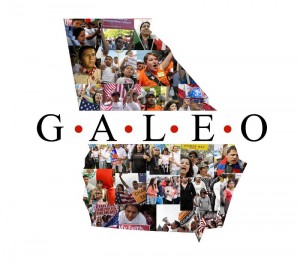Georgia’s Latino Bashing Misses The Mark
 By Jerry Gonzalez, Executive Director of the Georgia Association of Latino Elected Officials (GALEO) & the GALEO Latino Community Development Fund
By Jerry Gonzalez, Executive Director of the Georgia Association of Latino Elected Officials (GALEO) & the GALEO Latino Community Development Fund
Latinos are a growing portion of Georgia’s school population, in some places, like the City of Dalton and Whitfield County, they make up the majority. The reality is, that’s going to continue to increase, although it’s also a challenge seeing that much of Georgia’s population is first generation, some legal and some not.
But when you pair those numbers with registered Latino voter numbers, the picture becomes more clear.
In 2003 we only had 10,000 Latinos registered to vote in the state, as of 2009 we estimated it was about 150,000. In fact, Latino voter participation rates in the 2008 presidential election in Georgia outperformed the national Latino voter participation rates. For example, in Gwinnett County Latino voter registration went from 800 in 2003 to 26,000 in 2009. That’s astronomical.
These are significant shifts that are problematic for current political leadership to consider. This would help, of course, explain why the latest session produced the types of anti-immigrant bills it did. We have talented youth that have been raised in Georgia, have been here for over a decade, graduating and finding themselves between a rock and a hard place. Some of these students have gone from being able to receive in-state tuition, to paying out-of-state tuition, to being denied access to the top five state institutions, to possibly being denied complete and total access to a higher education at all.
Although politicians like Senate Majority Leader Chip Rogers call these students “wasted space,” I think that’s a short-sighted stance.
Georgia is not at the top of educational standards and performance in the U.S., it decreases the pool of talent that we can harvest and says something about how we value education in Georgia. It’s very difficult to inspire and to encourage a young Latino undocumented students to study and work hard in school when they know they face daunting obstacles to continue their education.
Georgia is losing serious talent.
And it’s a shame. In order to be competitive in the global market, we need to promote education. These types of initiatives do not help with that goal, with Georgia’s economic future. It’s no longer a matter of “if” immigration reform will happen, but when, our challenge is to be in the best position to move forward as a state when that time comes. That means making sure our young people are prepared to be productive members of society, and that means education.
At GALEO we are working to create community leaders and looking forward to the next 10 years in Georgia. During the next decade, the tremendous growth we’ve seen in the Latino community will begin to solidify and we will begin to see how Latinos in the South will shape the future of this part of the country.
Follow GALEO on Twitter @GALEOorg, or visit their website for more information.
[Image Courtesy GALEO]
